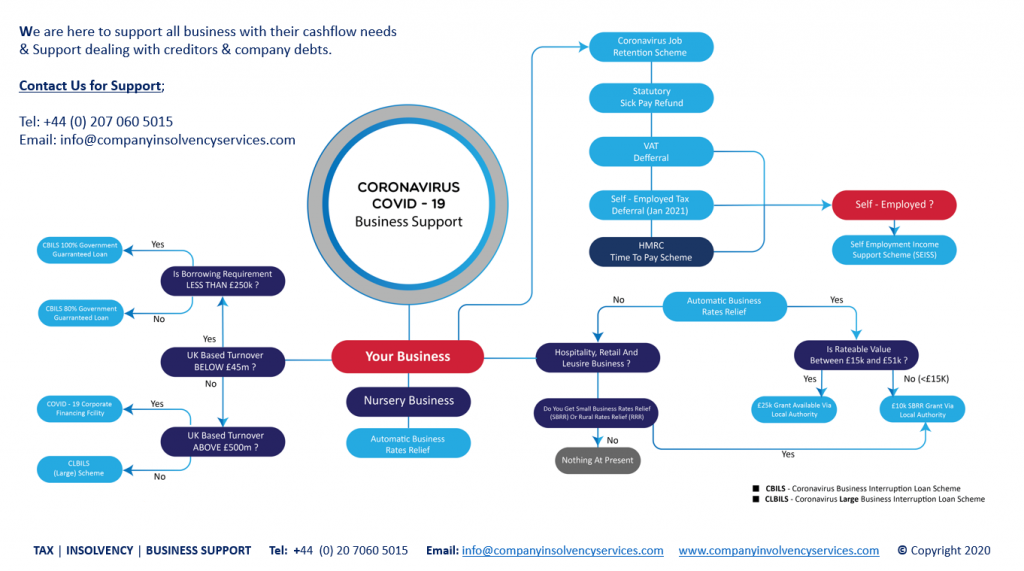What does Liquidating a Company Mean
An Insolvency Practitioner also referred to as a Liquidator is appointed to close a company via a process of liquidation.
The insolvency process is one where the insolvency practitioner investigates the running of the company; who are the creditors of the business and what are its debts, what are the assets of the company, who are its debtors? Also, the insolvency practitioner will investigate the running of the company and the conduct of the directors.
Liquidating a Company: A Complete Guide
Examples of creditors are:
- Her Majesty’s Revenue and Customs (HMRC) – VAT, PAYE, Corporation Tax, if any of these taxes are outstanding, then HMRC are creditors
- Trade Creditors, these could be suppliers to the company of raw material or services, utility providers
Examples of debtors are:
- Trade debtors are customers to owe money for sales that have been completed and the goods or services have been provided to the customer
- Other debtors can be advanced rent paid to the landlord, refunds due on advance purchases, the balance of funds still with a factoring company.
Example of the Director’s investigation
- The insolvency practitioner will investigate the directors’ loan account to see the funds introduced by the director and the amount taken out
- To see the conduct of the director on the way it carried out director duties, on running of the business, and on how they handled the company in trouble.
After the above process all of the company assets will be sold (liquidated) and the proceeds from the sale of the assets redistributed to the creditors, this is done in order of priority.
Above is a summary of the process of a company going into liquidation, below are more details based on the most common questions we see and what directors should be aware of.
Above is a summary of the process of a company going into liquidation, below are more details based on the most common questions we see and what directors should be aware of.
Liquidation implies that the business is not able to pay its debts.
Liquidation typically signifies the closure of a business due to financial difficulties, resulting in the cessation of operations.
The liquidation may come about:
- Through a legal court process.
- Due to creditor requests.
- Voluntary decision by the company or close corporation.
What dоеѕ dissolving a соmраnу mеаn?
Dissolving is the process of removing or ‘striking off’ a company from the register at Companies House.
In situations where a company has become surplus to requirements (i.e., it has fulfilled the purpose it initially set out to achieve) and is no longer trading, the most cost-effective and simple way forward for a director may be to apply to the Registrar to be struck off and dissolved.
So then, what does lіquіdаtion mean?
Liquidation is when a company’s assets are extracted and used to pay off any remaining debts before that company is dissolved.
When it comes to liquidation, there are three main types:
- Compulsory Liquidation: where creditors force you into liquidation as a way of recovering the debt owed. You can find out more by clicking here.
- Creditors’ Voluntary Liquidation (CVL): This is generally appropriate in situations where you and your shareholders conclude that the company is unable to pay its debts. The process is managed by a liquidator and requires the input of your creditors. Your company’s assets are sold and any surplus is distributed to its members. You can find out more by clicking here.
- Members’ Voluntary Lіquіdаtіоn (MVL): This is an option where the company is capable of paying its debts, but there is nevertheless a desire on the part of (at least) three-quarters of the company’s members to wind up the company. Once again a liquidator is appointed. Assets are realized (that is, to convert the assets into cash) and any resulting balance is distributed amongst shareholders. You can find out more by clicking here.
With compulsory liquidation,, your hand is forced, and you have to appoint an insolvency practitioner who will guide you through the process. In other situations, you could be faced with more than one option for shutting down your company.
Vоluntаrу strike-off and dissolution
When is it a good idea?
This process can be beneficial when the company has fulfilled its purpose, is no longer active, and is unlikely to be needed again in the future, such as upon your retirement.However, if there’s even a slight possibility you might want to use the company again, consider keeping it dormant. It can remain inactive indefinitely as long as you meet basic reporting requirements.
Dissolution cannot be used to avoid legal obligations or debts, including paying creditors.Failing to notify creditors of your intention to dissolve the company can have serious consequences. This could include prosecution and, in some cases, disqualification from holding directorships for up to 15 years.
You can closeyour company by simply applying to have it struck off the Companies House register if:
- It hasn’t traded or sold off any stock in the last 3 months.
- It hasn’t changed names in the last 3 months.
- It isn’t threatened with liquidation and has no agreements in place with creditors, such as a ‘‘ company voluntary arrangement’ (CVA).which is a legally binding agreement allowing a company to temporarily suspend (freeze) its unsecured debts and propose a plan to repay them using future profits.
Whаt’ѕ involved?
Before you apply to strike off your company, you must tie up any loose ends, such as paying any remaining creditors, disposing of any remaining assets, and closing the company’s bank account. From the date of dissolution, any assets of a dissolved company are frozen, and any credit balance will belong to the Crown.
You must notify HMRC.
Complete the application to strike off (form DS1). You must send this to Companies House and to anyone who could be affected within 7 days, including members, creditors still to be paid, employees, pension fund managers, and/or trustees.
If no objection is received within 3 months, the company is dissolved.
Creditors’ Vоluntаrу Liquіdаtіоn (CVL)
Whеn іѕ іt a gооd іdеа?
CVL tends to be appropriate when business owners realize that carrying on is no longer viable: where debts cannot be paid as they fall due and/or where liabilities exceed assets. If you believe you fit into either of these categories, you should seek advice from an insolvency practitioner immediately to avoid falling foul of the rules concerning wrongful trading.
This can be an effective way of ‘taking matters into your own hands’: of engaging with creditors and putting forward your position before they take formal action themselves.
Whаt’ѕ involved?
A meeting of shareholders is mandatory, and a 75% majority (by share value) must approve a winding-up resolution.
A liquidator (i.e. an authorised insolvency practitioner) is appointed to oversee the winding-up process. The winding-up resolution is then sent to Companies House and published in The Gazette, the UK’s official public record.
You must also hold a creditors’ meeting, where you present a statement of affairs detailing the company’s financial situation and answer any questions creditors may have regarding the company’s decision to wind up.
The liquidator then realizes the company’s assets, selling them and distributing the proceeds according to the priority of debt. Secured creditors will receive their share first, followed by unsecured creditors.
Once all obligations are met and the winding-up process concludes, the company is formally dissolved.
Mеmbеrѕ’ Voluntary Lіquіdаtіоn (MVL)
Whеn is іt a gооd іdеа?
This is an option where the company is solvent (i.e. able to meet any debts), but there is still a desire to have it wound up. One common example is a family business where the directors wish to retire, or where a business owner wishes to free up assets from an existing company to fund a new venture.
You may still have outstanding debts, but you are extremely confident that these will be discharged in full within 12 months from the beginning of the process of winding up the company.
Therefore, you are required to give a statutory declaration to this effect.
You may be faced with a choice between MVL and applying for voluntary strike-off. All assets extracted from the company via liquidation are treated as capital for tax purposes. With voluntary strike-off, assets after the first £25,000 are treated as income. If your company structure is relatively complex, if you’re a higher rate tax payer or the value of your company assets, after creditors have been paid, is likely to exceed £25,000, MVL may be the preferred way forward.
What’s involved?
In a similar way to CVL, a liquidator is appointed, and after creditors have been paid, net liquid assets are distributed amongst company members.
While Member’s Voluntary Liquidation (MVL) typically involves higher administrative costs due to liquidator involvement compared to voluntary strike-off, it can be the more financially sound option in specific situations, especially regarding tax considerations.




